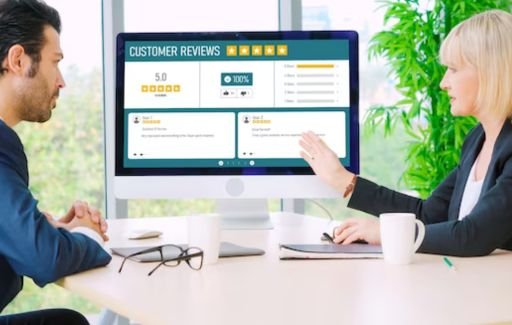


In today's digital landscape, your website's reputation matters more than ever. With so many sites vying for visitors' attention, having a positive online reputation can set you apart from competitors and establish trust with potential customers.
An important part of managing your site's reputation is regularly checking for potential threats or malicious content associated with your URLs and domain name. Read on to learn why conducting periodic website and URL reputation checks is essential and how to use the best tools to safeguard your site.
With the billions of web pages in existence today, search engines and security services simply can't manually review each one. Instead, they rely on sophisticated algorithms and databases to evaluate websites' trustworthiness and safety.
Some key reasons to monitor your site's reputation include:
Regularly checking for these and other reputation threats allows you to take corrective action before lasting damage is done.
When monitoring your overall website reputation, some important elements to examine include:
Malicious code on your site is one of the fastest ways to get blacklisted and raise red flags with visitors. Reputation monitoring services scan for hidden malware.
Issues like an expired domain registration or the use of privacy features to obscure ownership details can negatively impact reputation. Verify your info is current and transparent.
Your hosting provider's practices and site uptime track record reflect your brand. Choose a reputable provider and check for server problems.
Thin content created solely for SEO, scraped material, and spammy guest posts can diminish your reputation. Ensure content is high-quality and original.
Too many outbound links, especially to questionable sites, can undermine reputation. Monitor where your pages link and limit low-quality connections.
Explicit or illegal content is one of the biggest reputation killers. Ensure all your materials meet content policies and laws.

Drilling down beyond overall site reputation, regularly checking individual URL reputation is also crucial. Some key URL signals to monitor:
Services like Google Safe Browsing warn users of malicious, spammy, or phishing domains and URLs to avoid. Blacklists tank reputation.
The IP addresses associated with your URLs may have sent spam or engaged in other abuses in the past, creating ongoing reputation problems.
If your URLs get reported for phishing or hosting fake login pages, it immediately destroys trust and results in blacklisting.
URLs that serve as distribution points for malware downloads get flagged quickly, damaging reputation. Scan files for hidden threats.
Too many low-quality sites linking back to your URLs simply to manipulate PageRank can undermine your reputation.
Long chains of redirects on a URL suggest redirection spam and will significantly lower reputation. Keep redirect hops short and relevant.
Checking these critical URL signals regularly enables you to find and remediate issues before they spiral out of control.
Many excellent free and paid tools are available online to check your overall website reputation and specific URL status. Here are 10 top options:
Google's free online console shows you how Google views your site's health and reputation, including malware warnings, blacklists, and other issues impacting your standing.
The Webmaster Tools in Bing and other search engines provide similar reputation and blacklist notifications as Google Search Console.
This security scanner specifically looks for threats like malware and spam and provides reputation ratings displayed in search results.
SiteCheck does an expansive malware scan and provides a clear site reputation report and blacklist monitoring.
A free tool for looking up domain and URL reputation scores and detection history from multiple antivirus engines and blacklists.
This database categorizes websites into over 50 content groups, useful for checking if your site has issues with adult, illegal, or other high-risk material.
A longstanding reputation monitoring service covering blacklists, site content categorization, brand mentions, and user reviews.
This social media and digital risk protection platform offers dark web scans and domain/URL risk scoring along with broad online threat protection.
A thorough malware scanner that delivers in-depth website health, blacklisting, and certificate reputation reports.
Enterprise-level domain investigation tools including reputation analysis, URL metrics, hosting forensics, and domain profile reports.
With how rapidly online threats spread and search engine algorithms evolve, monitoring your website and URLs just once is never enough. Here are some best practices for incorporating regular reputation checks:
Consistently checking in on your site's reputation is the only way to stay ahead of the curve, avoid major drops in search visibility, and maintain user trust over the long haul. Monitor and protect your online reputation diligently as a fundamental component of running a successful website.
A: Website and URL reputation refers to the aggregated security, trustworthiness, and authority assessments search engines, security vendors, and users make about a domain and its pages based on factors like malware, blacklists, content quality, and suspicious links. A positive reputation improves search rankings and user trust.
A: Industry experts recommend checking your overall website reputation at least monthly using a variety of scanning tools, and assessing new URLs and domains before publicizing them. Set up real-time reputation monitoring to stay on top of sudden changes or blacklist events that require immediate fixing.
A: With time and work, sites can recover, even from serious reputation blows like major malware infections. Focus on completely cleaning your site, improving content, building high-quality links, monitoring closely, and submitting reputation reconsideration requests to vendors. Eventually, your improved reputation will be reflected in search and user trust signals.
A: Some top free website reputation monitoring tools include Google Search Console, Bing Webmaster Tools, McAfee SiteAdvisor, and Sucuri SiteCheck. Each scanner offers unique insight into malware warnings, blacklists, site content issues, and other reputation factors. Use a combination for the most comprehensive oversight.
A: First clean up any malware on your site. Then, file for a review in Google Search Console, detailing the steps you've taken to fix the problems. Also, submit de-listing requests to other vendors that may have blacklisted your site. Focus on improving content and reputation until warnings are removed.
Your website's reputation is too important to overlook - it directly impacts your site visibility, user trust, and ultimately your business success. By making website and URL reputation monitoring a regular practice, leveraging multiple free and paid tools, and acting swiftly when issues emerge, you can keep your site reputation pristine.
Avoiding the major headaches that come with a damaged reputation is well worth the minimal time investment of conducting ongoing checks. Keep your site in the green and maximize your ability to rank on search engines, engage visitors, and build credibility online.